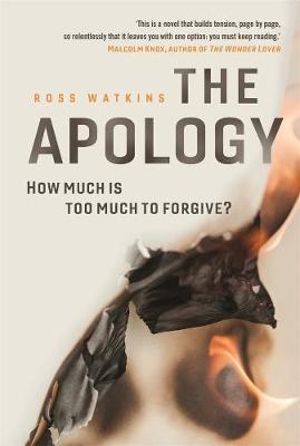The Apology (UQP 2018), the debut novel by Ross Watkins, is a mesmerising psychological suspense family drama that explores memory – what we choose to remember, what we choose to forget and what we decide to reframe – and navigates the difficult territory of childhood trauma and the legacy it imprints into adulthood. This is a taut and tightly-controlled narrative that very cleverly doesn’t say too much, but leaves much to the reader’s imagination, with tense pacing that dares you to put it down. It is a story that poses many moral questions and does so by presenting views of the past from many facets and perspectives. With chapters from the viewpoints of different key characters, the reader is confronted with a complex dilemma – how to understand past actions which contradict the moral code; how to comprehend motivations we find difficult to accept.
At the centre of the story is Adrian Pomeroy, an English teacher accused of inappropriate behaviour. Circling him are other significant characters: Alex, a troubled student; Noel, Adrian’s brother coping with his own damning past; Nguyet and Tam, Adrian’s wife and child, undone by their family’s grief; and Riley, Noel’s trans son, coming to terms with his own identity. As the repercussions of Adrian’s actions shatter his family, and as he and Noel face up to their own actions of 30 years earlier, long-held secrets are unearthed, and lies and truths are exposed. With a critical and knowing eye, the story examines the powder keg ecosystem of school life, the emotional tinderbox of family life, and the dangerous sparks that could set everything alight.
Some of the first words Adrian utters in this book are ‘I’m sorry’. This story is about apologies and betrayal, about deception and forgiveness. It is about the lies we tell ourselves in order to survive the past, the truths we ignore in order to live in the now, and the people we protect in order to go forward into the future. This book will make you question your own recollections of childhood events, and make you think twice about the genesis of the actions of others. How much of our behaviour can be excused by past transgressions against us? What is the legacy of that behaviour on the future sins of others? What does it take to break the cycle? And whose responsibility is it to do so?
This book grabbed hold of all my expectations and shook them around. I felt compassion and understanding in unexpected places. I began to second-guess my own reactions and question my preconceptions. This book really made me think.

